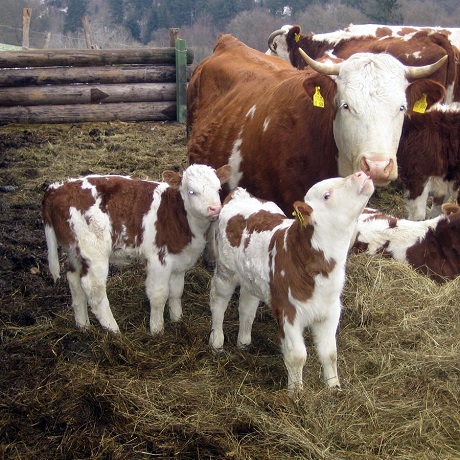Scientists of S.Toraighyrov Pavlodar State University presented their developments on cattle embryo transfer at the seminar “Efficiency of embryo transfer introduction to increase cattle productivity”.
The event was held at the “Pobeda” LLP (Orlovka village, Shcherbakty district).
The seminar was also attended by representatives of the breeding inspection, departments of agriculture, agricultural producers.
In his speech, Deputy Head of the Department of Agriculture Marat Shugayev noted that in order to increase labor productivity in agriculture, it is necessary to introduce innovations. In this regard, the method of embryo transfer will help to rapidly multiply the number of highly productive animals.
“Our farmers need to boldly introduce this technology into the breeding work. In addition, the state allocates a new type of subsidy for embryo transplantation since this year, ”he said.
Professor Toktar Bekseitov, the dean of the Faculty of Agricultural Technology of S.Toraigyrov PSU named after, Doctor of Agricultural Sciences, noted that in world practice this method is widely used, but in the Pavlodar region it is introduced for the first time.
The first results of PSU scientists are encouraging. The engraftment of embryos after transplantation was 60-70%.
“The essence of the technology lies in the fact that, for example, from the best record cow per year can breed one calf in the traditional, natural way. And if you wash out the embryos several times a year, 40-50 embryos can be transplanted to unproductive surrogate mother who carry it, and as a result 40-50 calves can be obtained from this record cow”, said T. Bekseitov.
Director of Pobeda LLP A.V. Polyakov noted that he sees concrete benefits from embryo transfer. In their farm, scientists have already transplanted embryos from record cows, and henceforth intend to use this method in their own farm, which will make it possible to increase the number of highly productive cows several times.
It is worth noting that a positive result was possible in the framework of the project for stimulation productive innovation, funded by the World Bank and the Ministry of Education and Science of the Republic of Kazakhstan.
In addition, during the workshop, scientists demonstrated potential donors of cow embryos.







